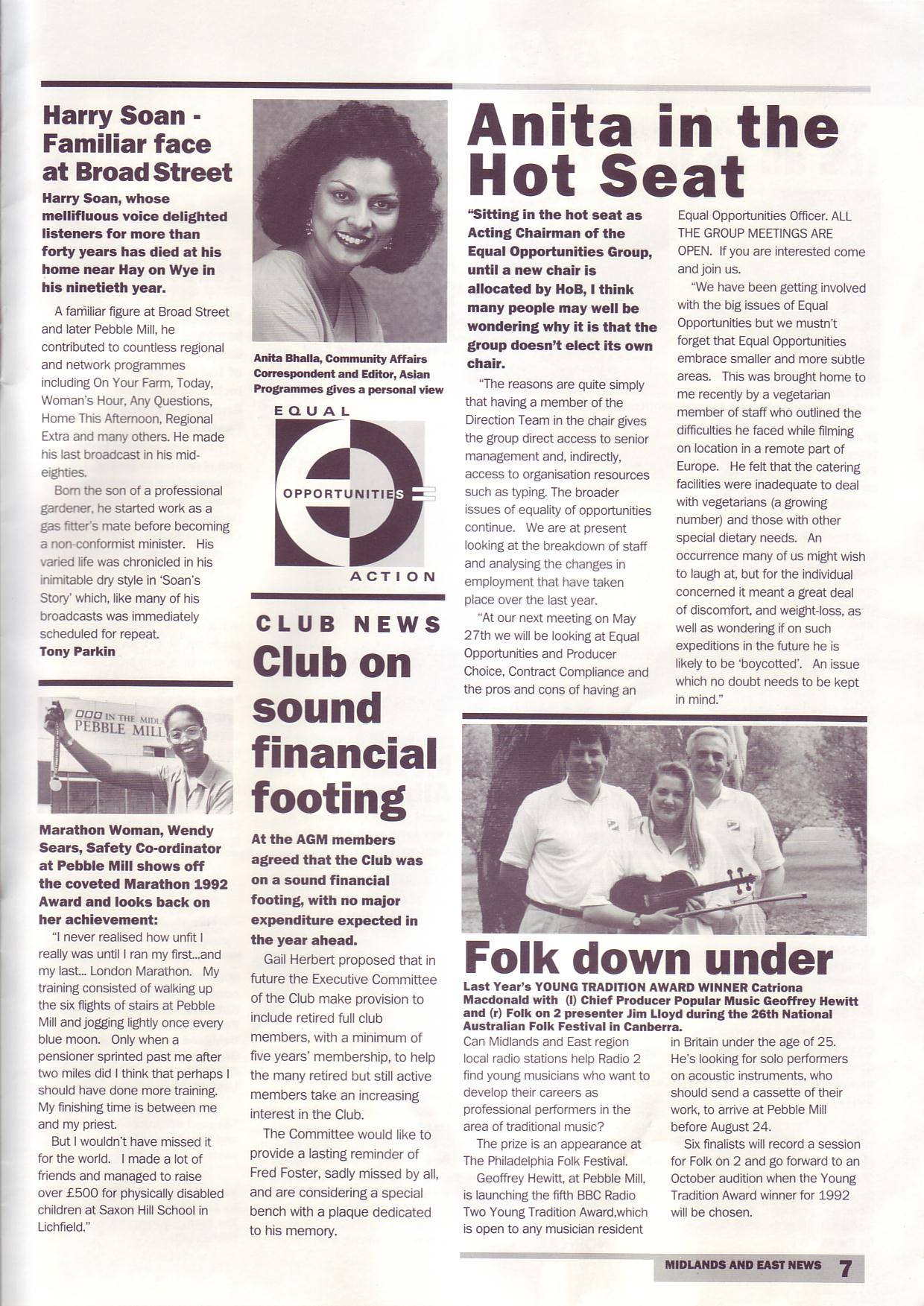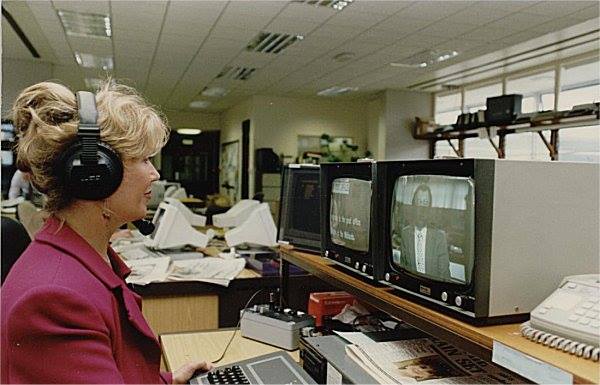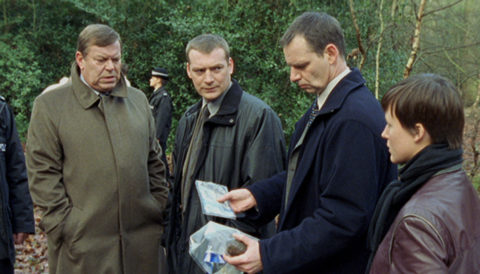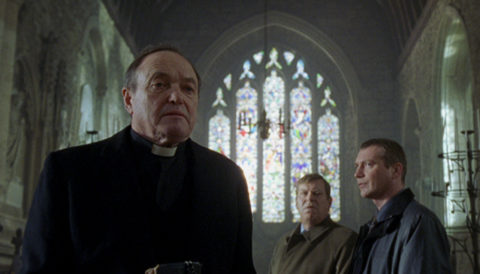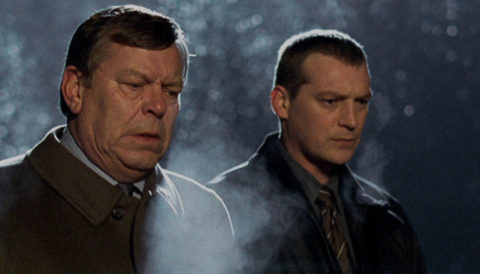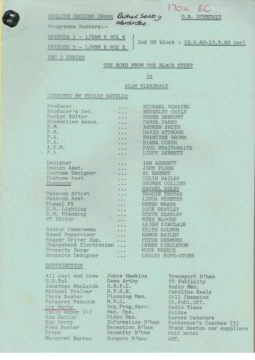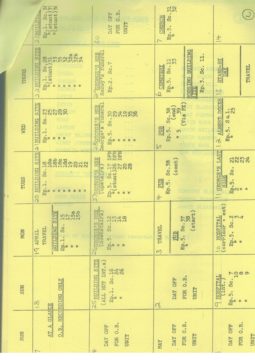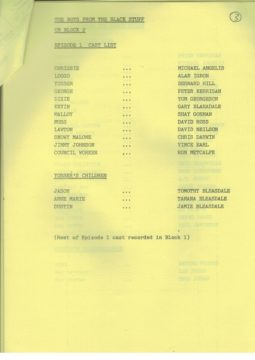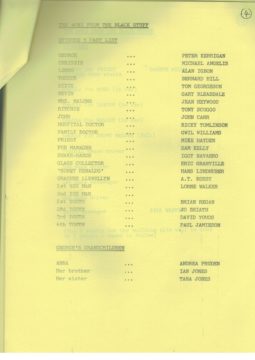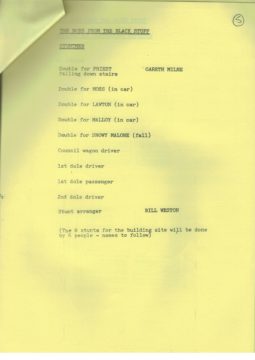
Screen grab from ‘You and Me and Him’. Copyright resides with the original holder, no reproduction without permission
In the months before David Rose died, I was approached by a friend and former colleague of his, asking if I could get hold of a copy of David Mercer’s 1973, Thirty Minute Theatre drama, You, and Me and Him, for him. Through friends at the BBC Drama Village, I managed to get a copy of the drama dubbed off, and sent to David. Fortunately, despite being very frail David was able to watch it in the weeks before he died, it apparently meant a lot to him. I decided to take the opportunity of watching the drama myself, and below are a few observations about it.
The only character in the play is Coster, played brilliantly by Peter Vaughan. It is a studio piece, which sounds simple, there being only one character. It is anything but! Coster is in conversation with himself, in three different guises throughout the drama, in quite a schizophrenic manner. There are different settings, an office, and a bedroom. When in the office, Coster wears glasses and is smartly dressed, in the bedroom he is dishevelled and wearing pyjamas. He is in the care of a psychiatrist and realises that he needs to pull himself together. We hear Coster taped on a ¼” tape, and on the phone to himself.
It is a psychological drama and quite philosophical, and considers some of the darker issues in life, there is talk of army rape, of pornography and lusting after little girls. The tone gets increasing violent during the drama, as one version of Coster wants to get rid of his alter-egos. He even talks of suicide. The drama ends with the conclusion that ‘You and me, are him’, and that in fact they each love the other.
Technically the drama is very complex, with hundreds of edits in a half hour piece, including a lot of split screens. John Lannin was the VT editor, and did a wonderful job. It was presumably recorded on 2” videotape, and so the editing process must have been tortuous and extremely time consuming. There are some really creative shots especially in transitions between settings, for example the feet of one of Coster’s personalities from one setting, appear in the foreground of the other setting. I’m not sure how this would have been done at that time, unless it was a locked-off shot. There is also a shot showing the empty office chair spinning, and then Coster appears sat in the chair, which was presumably a locked-off shot.
The director was Barry Hanson, with David Rose the producer, and Michael Edwards the production designer. This was a really innovative piece of drama, which stands up pretty well to contemporary viewing. Apparently the master tape was supposed to be wiped, but it was kept by the VT boys, who changed the tape number. It was then found in the basement by Paul Vanezis in 1990, and placed in the BBC Archive.
Save
Save
